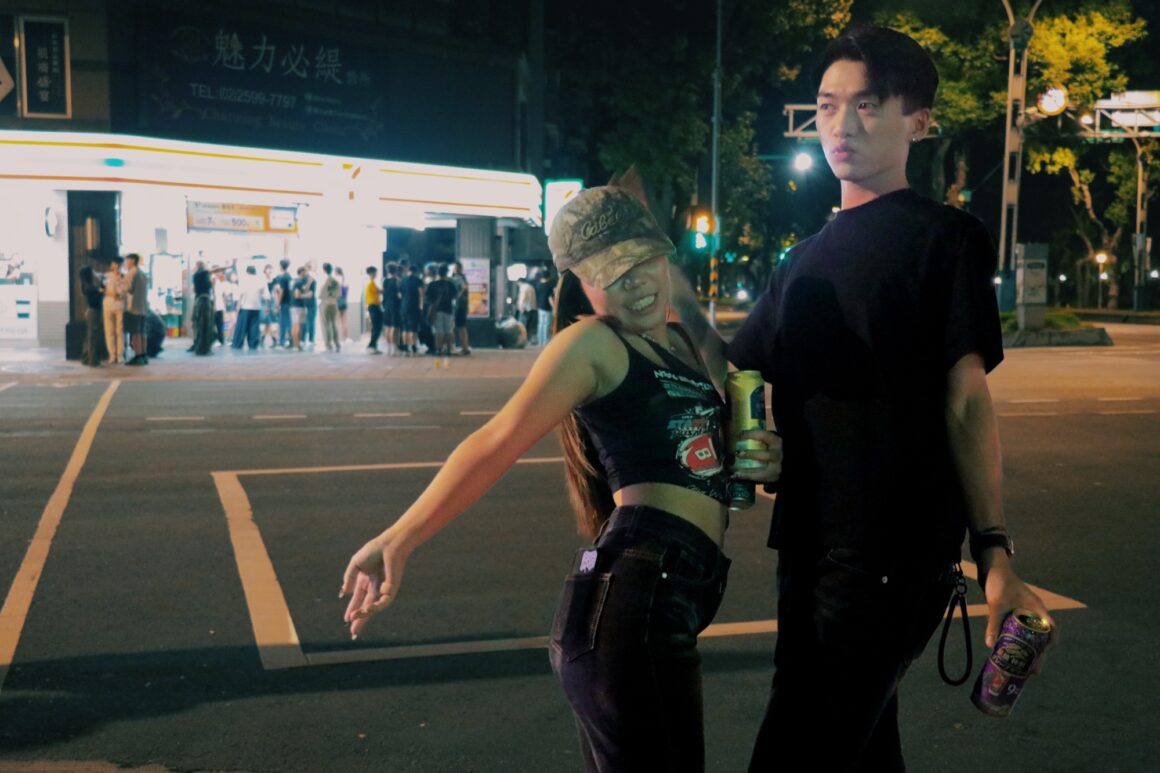Author Levarcy Chen
Photos Levarcy Chen, Maji Square
Editor Julien Huang
“Yuanshan is where you go to have fun; Xinyi is where you go to be seen.” This comparison from the operator Mr. Martin Fan captures the essence of Maji Square (Maji 集食行樂)— a venue that deliberately positions itself as something refreshingly different from Taipei’s typical nightlife destinations. While Taipei’s glittering commercial districts demand polish and performance, Maji welcomes you in shorts and flip-flops. Foreign visitors arrive with beer in hand and stay until morning. The ethos is refreshingly simple: “Do what makes you happy.”
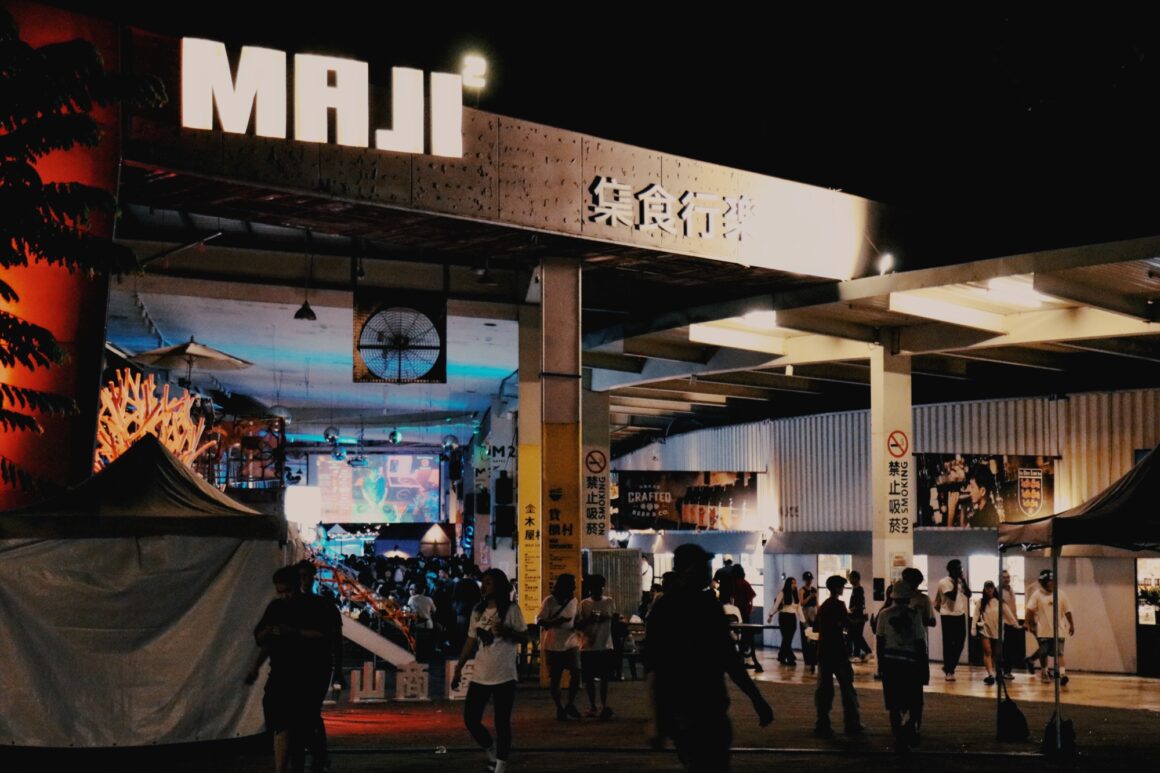
This alternative leisure space exists thanks to a unique opportunity. Following the 2010 Taipei Flora Expo, the city government issued an OT (Operate-Transfer) contract to revitalize the former expo grounds near Yuanshan. What emerged sits in what Martin calls an “open middle ground”—neither commercial district nor residential zone, but something refreshingly in between that wouldn’t be possible in Taipei’s more regulated areas.
This philosophy of casual authenticity defines everything about Maji Square, from its vendor selection to its weekend party culture, transforming it into one of Taipei’s most distinctive nightlife destinations.
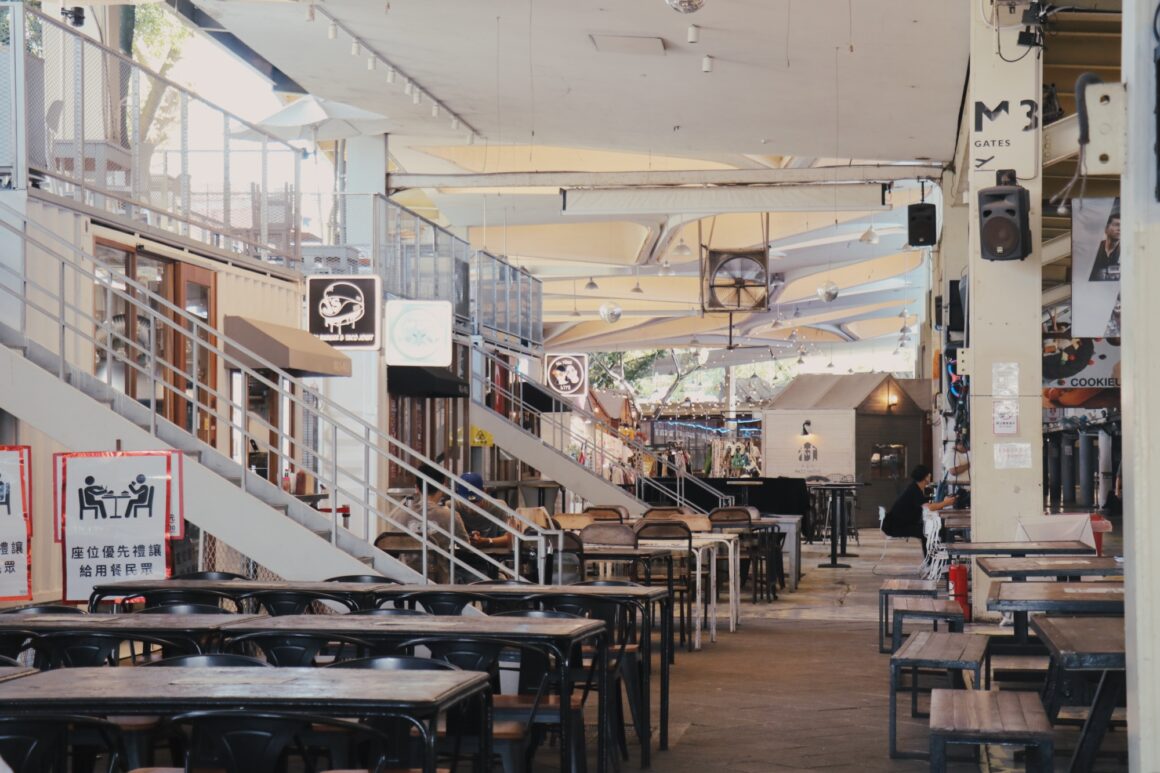
Anti-Formula Design: A Cultural Incubator
Maji Square’s design philosophy draws inspiration from international farmers’ markets rather than conventional commercial developments. The deliberate rejection of chain brands and luxury labels creates space for something more experimental—a genuine incubator for young entrepreneurs and independent businesses.
“We hope not to have chain brands come in,” Mr. Fan states plainly. “We’ve incubated many independent brands here.” The shipping container area, rebuilt at a cost of millions, including invisible infrastructure like wiring, drainage, and electrical systems, serves as an encouraging launchpad for first-time business owners. The result is what he describes as “Chill × Everyday fashion” culture—where style means a white t-shirt and jeans, not designer labels. “Fashion is wearing a t-shirt and jeans, not the kind of fashion where you need to wear brand names,” he emphasizes. This accessible yet internationally-minded aesthetic has become Maji’s calling card, representing what he calls “subculture expression” within an urban setting.
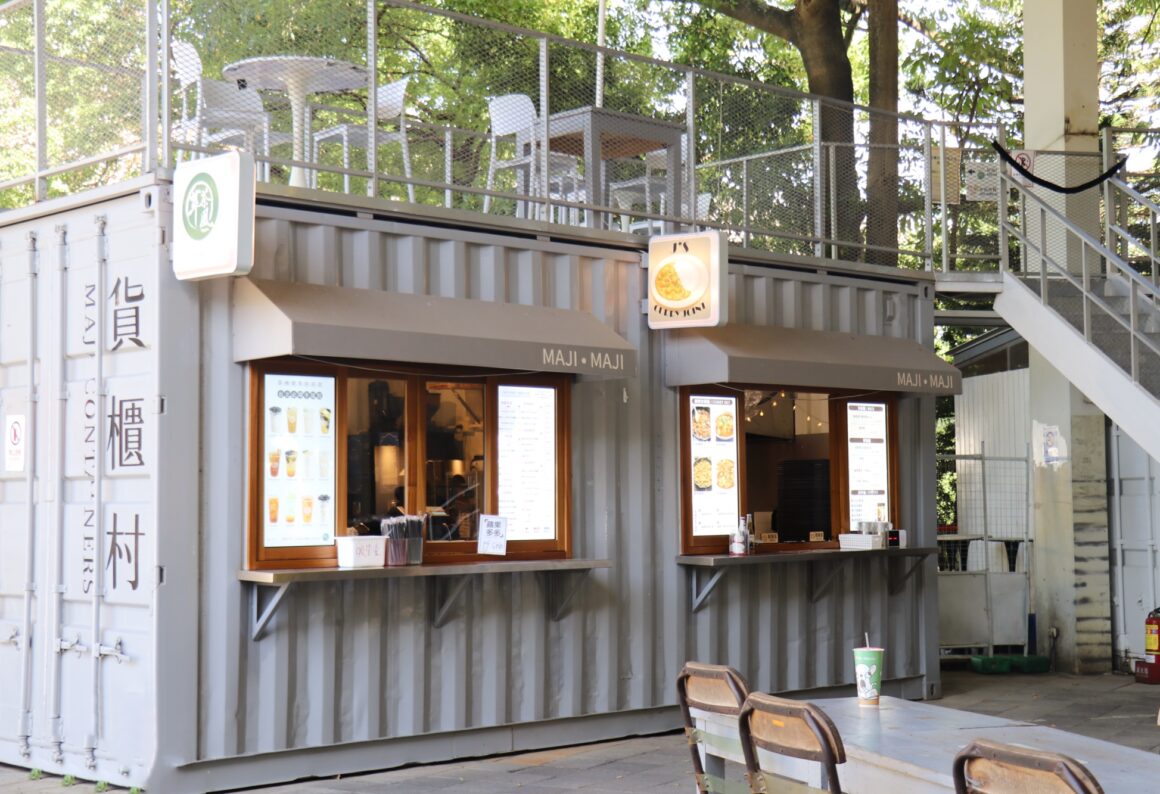
When The World Meets Taiwan, Taiwan Meets The World
Maji Square functions as a two-way cultural gateway. On one side, it brings authentic international culture into Taiwan. On the other hand, it projects Taiwanese culture outward to the world.
Authentic International Input: When recruiting international food vendors, Martin insists on cultural authenticity—”real local culture” brought in by people actually from those places. This principle has populated Maji with genuine international flavors: Argentine barbecue run by Argentinians, Indian curry prepared by Indian chefs, Turkish kebabs by Turkish operators, Mexican tacos from Mexican vendors, and New York-style pizza by New Yorkers. These aren’t fusion approximations but genuine cultural transmission through food. Among these, the Argentine barbecue and Turkish offerings have become particularly popular, drawing repeat visitors seeking authentic tastes rarely found elsewhere in Taipei.
The cultural programming extends beyond dining. Maji has hosted Spanish Flamenco performances, jazz quartets, Swing dance, and Salsa sessions—all without charging admission. “We put music in,” Mr. Fan notes, alongside art exhibitions at the Nomad Museum, creating multiple layers of international cultural experience.
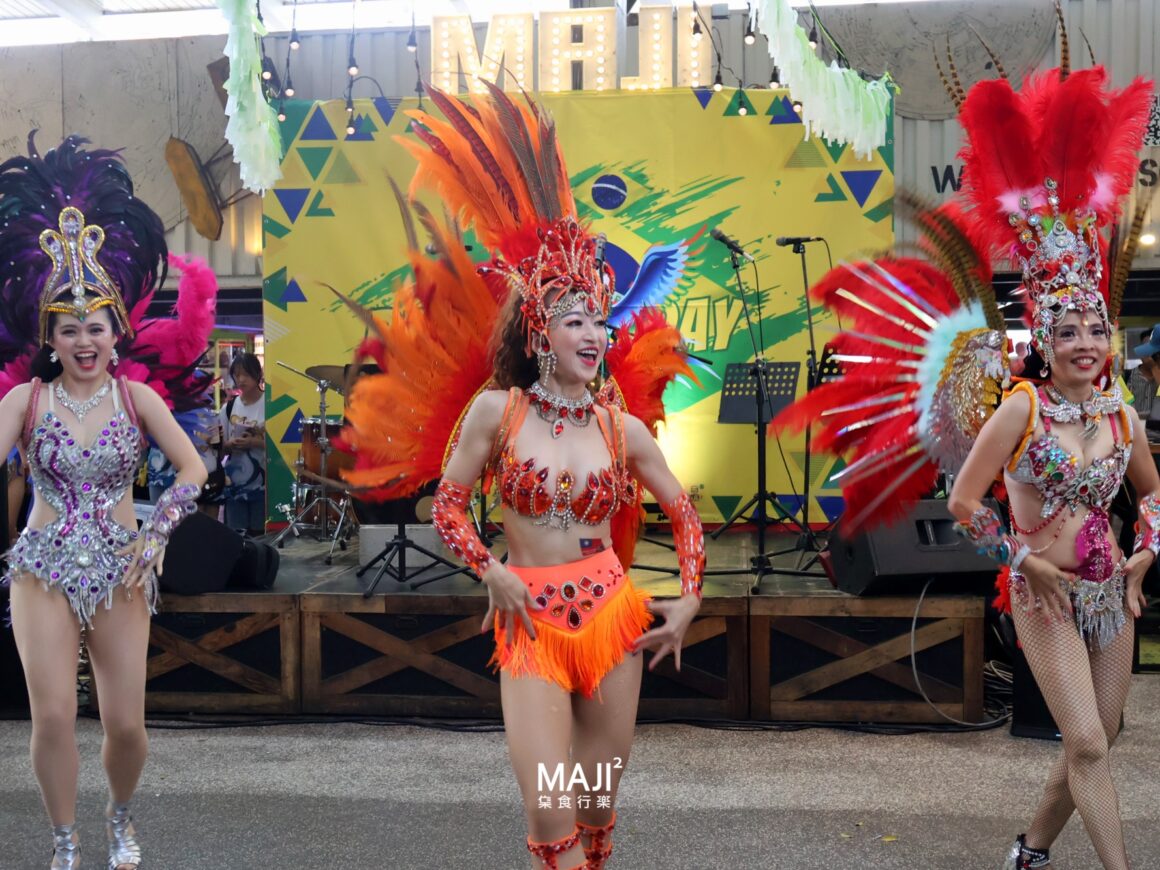
Taiwanese Cultural Output: Maji’s sister brand, Maji Treats (神農生活), exemplifies Taiwan’s outward cultural reach. The team carefully curates from food to everyday essentials, even redesigning vintage items to create a refreshing symbol of Taiwanese culture. After extending the new branch in Kintetsu Department Store (近鐵百貨), the biggest department store in Osaka in 2021, Maji Treats achieved a major milestone: selection as the exclusive food service team for Taiwan’s pavilion at the 2025 Osaka World Expo—a six-month commitment representing Taiwan on one of the world’s largest stages. This appointment validates Maji Treats’ role as a cultural ambassador, bringing Taiwanese culture to international audiences through arguably the most prestigious global platform.
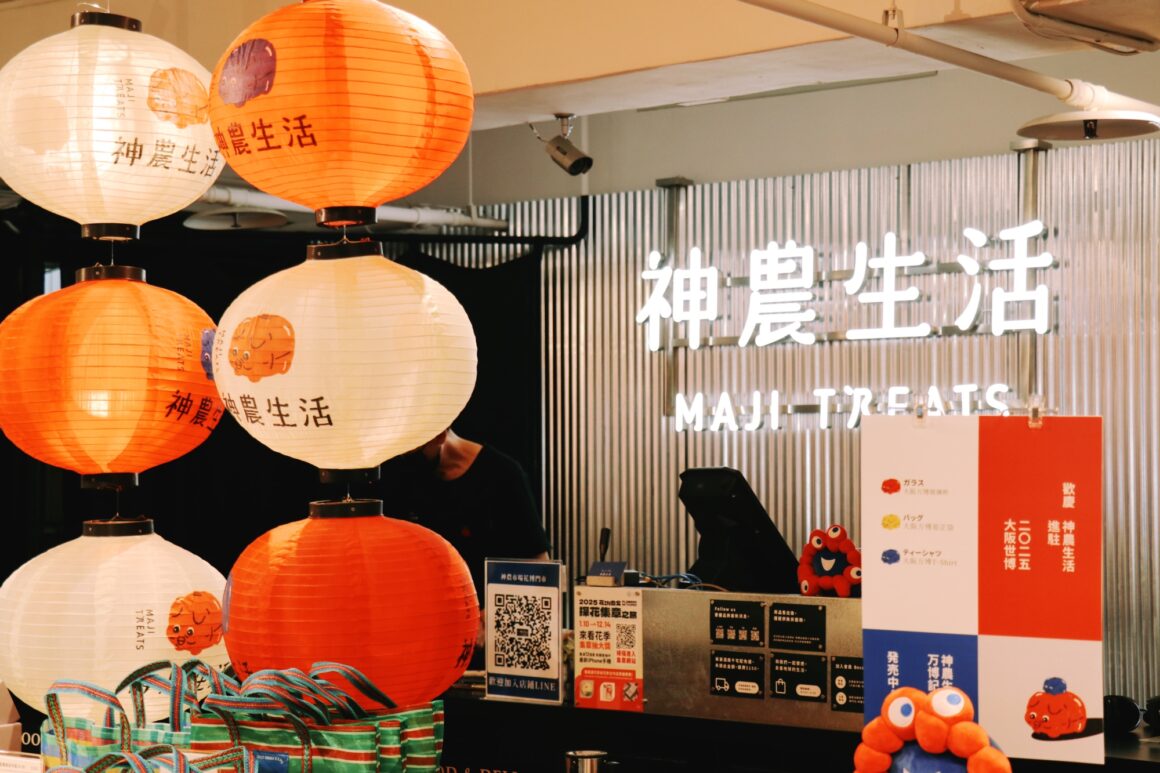
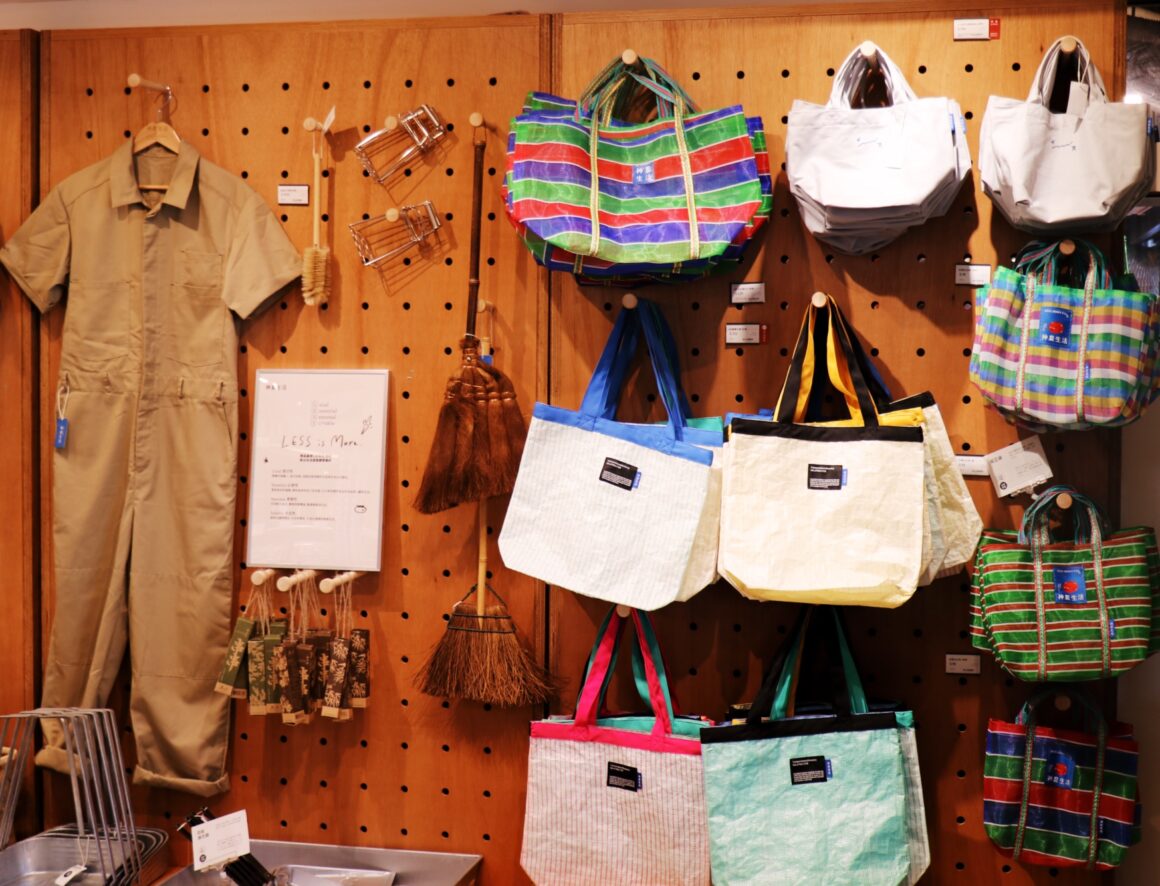
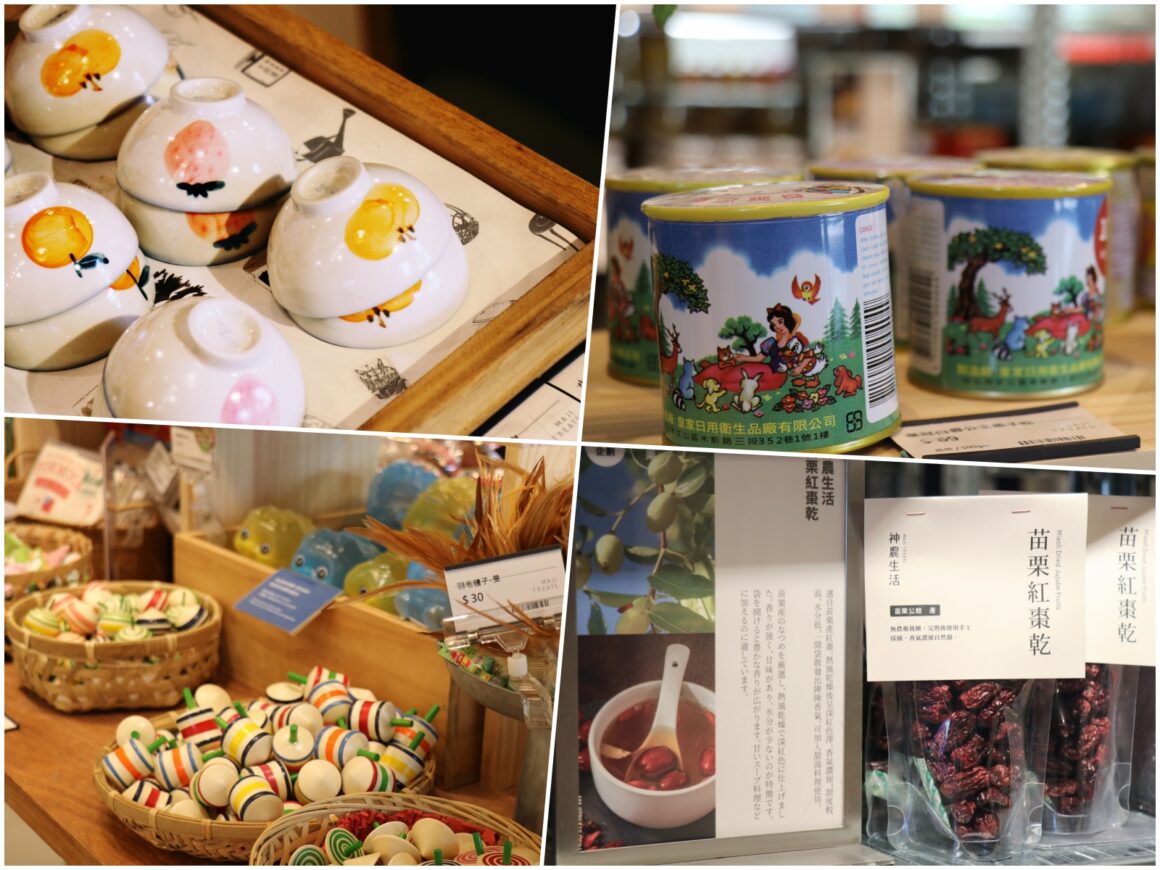
Community Energy: The Organic Explosion of Party World
COVID-19 brought Maji Square to a crossroads that ultimately defined its identity. The pandemic devastated the venue initially—a third of tenants left. But Martin noticed something peculiar: while daytime crowds disappeared, weekend evening visitors actually increased. People left around 9:30 PM but mysteriously reappeared at 11 PM.
“The business at night was better than during the day,” he recalls. “We made a decision: OK, we’re done with retail. Let’s go with “all restaurants and bistros”. We amplified that, and it worked.”
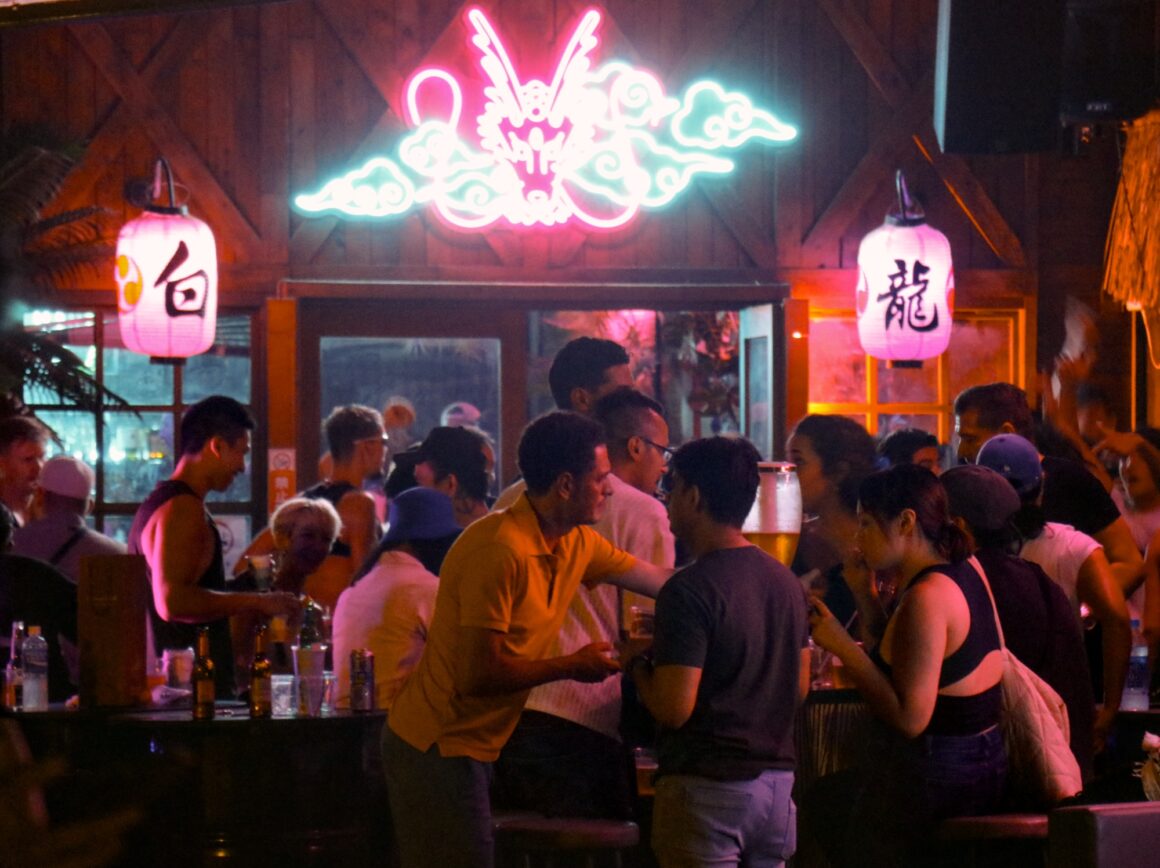
The pandemic’s outdoor gathering trend perfectly suited Maji’s open-air layout. “Everyone started drinking outdoors, listening to music,” Martin describes. “It became a very satisfying place—not in some basement.” Maji emerged as Taipei’s only location where people could dance in an open outdoor space, creating what he calls “Party World”—a welcoming, safe environment that feels like a community.
The atmosphere has also sparked organic, viral moments. A recent Disney character-themed party organized by young promoters generated 80,000 social media shares and brought at least 500 costumed attendees—none of it officially organized by Maji but enabled by the space and culture it provides.
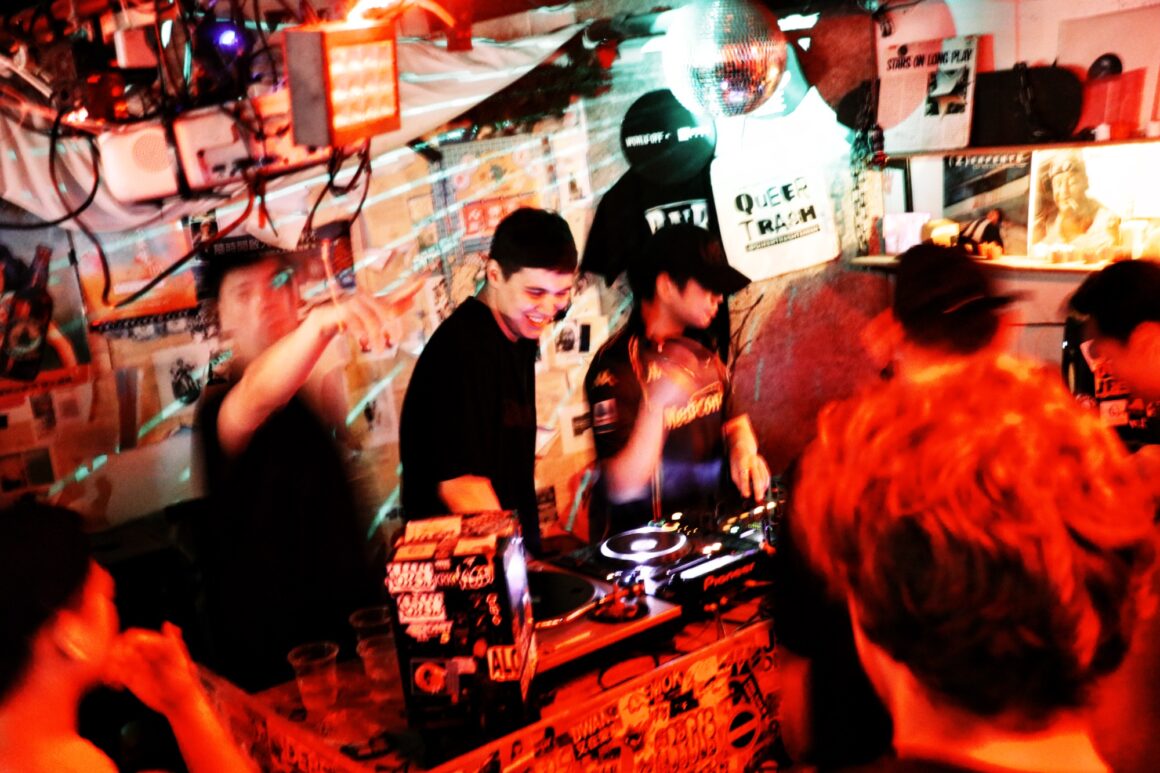
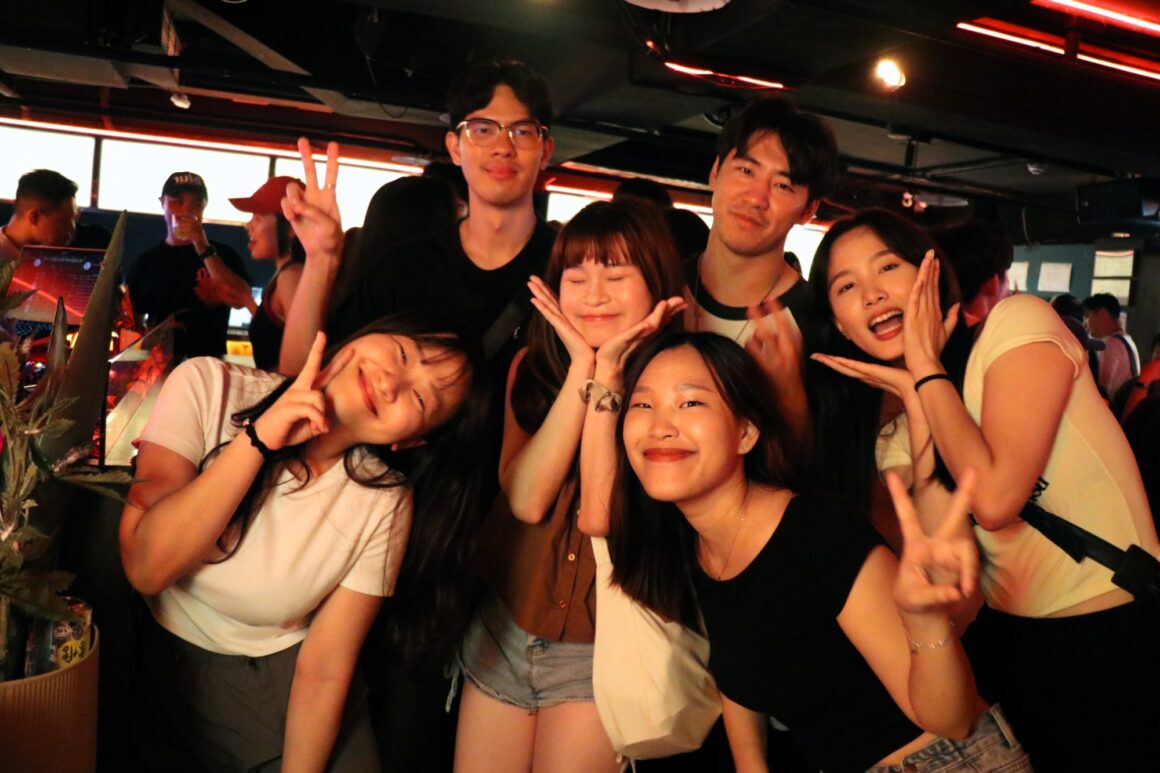
“We’ve invested in sound systems and infrastructure,” Martin notes, including renting additional portable toilets for women to handle weekend crowds. But the programming is increasingly self-generating. “We focus on optimizing content, especially on weekends—giving visitors very good reasons to come, even though we don’t have parking.”
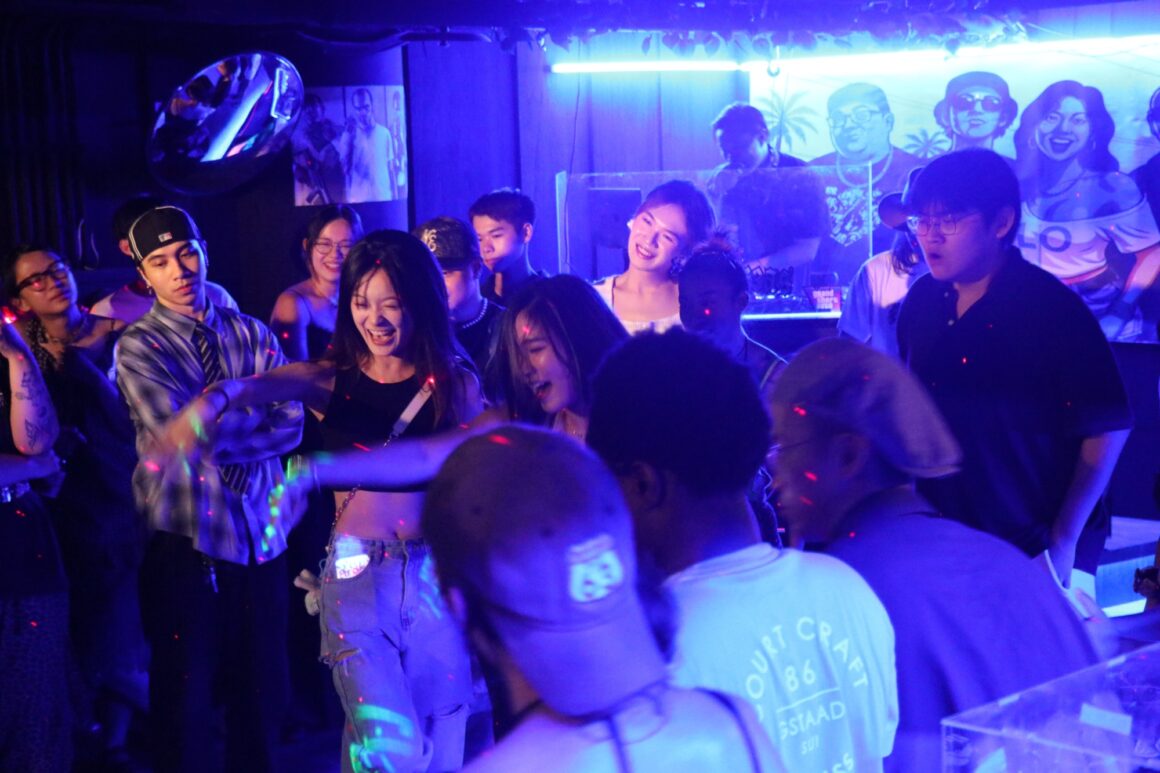
The Season of Gathering: October at Maji Square
October brings Maji’s three signature autumn events, each showcasing how the venue has become embedded in Taipei’s cultural calendar.
Pride Afterparty
Following Taipei’s LGBT Pride march, Maji serves as the habitual afterparty venue, playing “gay-friendly songs” in what has become “an annual habit that doesn’t need big promotion.” The space’s welcoming, non-judgmental atmosphere makes it a natural home for this celebration. Check for more information.
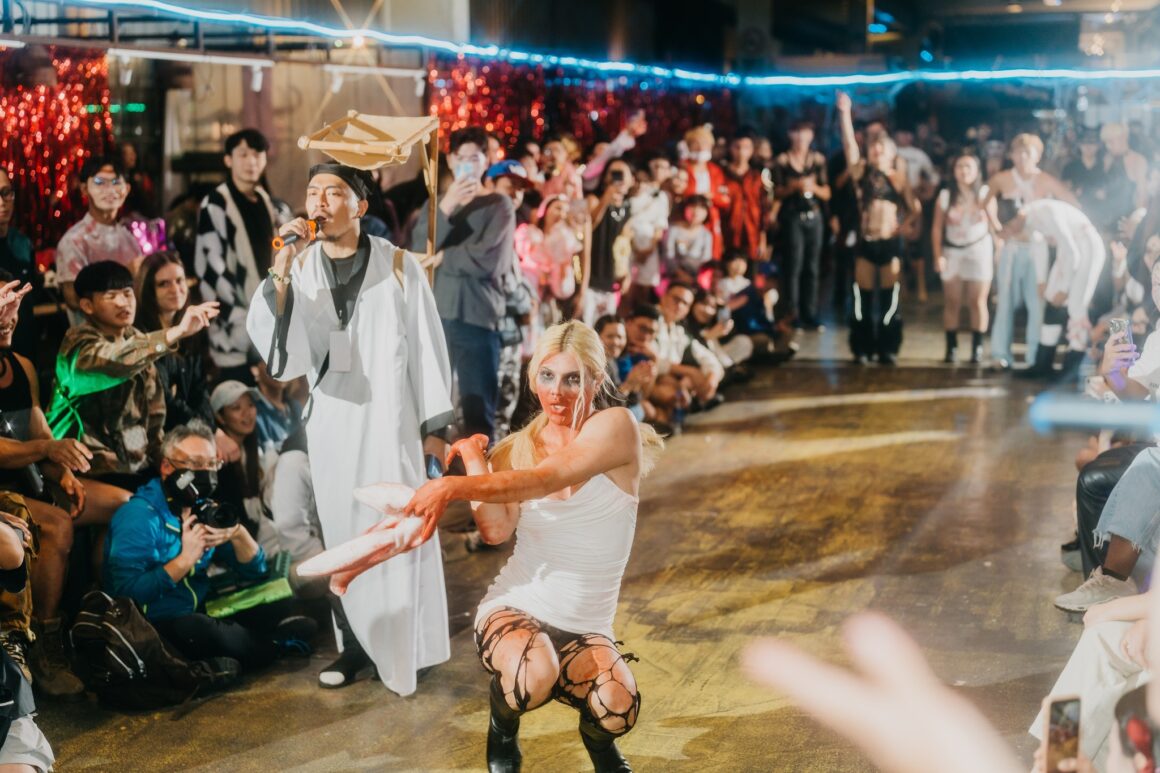
Halloween
“Will be especially crazy,” Martin predicts, with people arriving in full costume—”but this isn’t something we actively organize.” It’s become a naturally occurring gathering, testament to the community Maji has fostered.
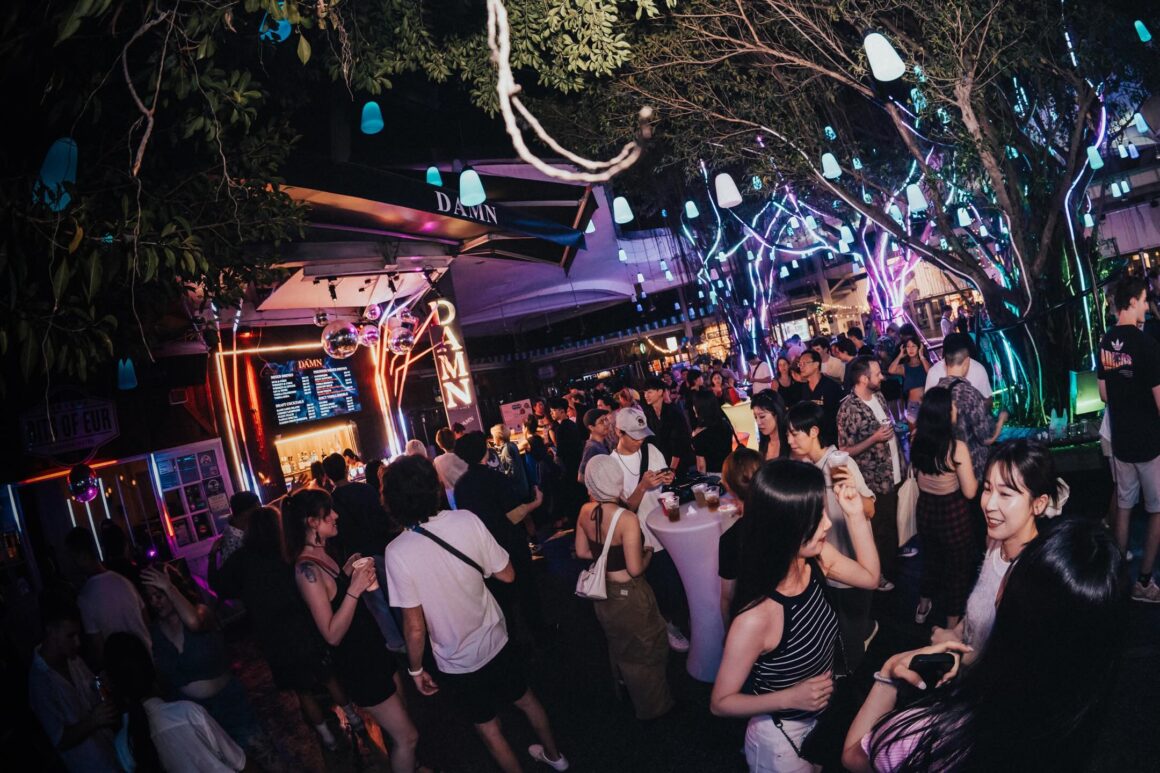
Nuit Blanche Taipei 2025
An all-night arts festival that turns the city into a living gallery. Picture this: over a hundred artists transforming the Yuanshan and Flora Expo Park areas with glowing installations, video projections, dance performances, and interactive art. Performances wrap up around 2 AM, but the illuminated artworks stay lit through the night, creating a dreamlike landscape where you can wander between glowing sculptures and light installations while Maji keeps the energy going until dawn.
Whether you’re a family enjoying weekend brunch, an entrepreneur testing a container shop concept, an expat seeking familiar flavors from home, or a dancer in Disney costume joining hundreds of strangers for an impromptu Saturday night party, Maji Square welcomes you with the same implicit message: come as you are, play for yourself. In a city that often demands performance and polish, this rare permission to simply enjoy the moment might be exactly what makes Maji special—and with October’s festivities in full swing, there’s no better time to experience it.
